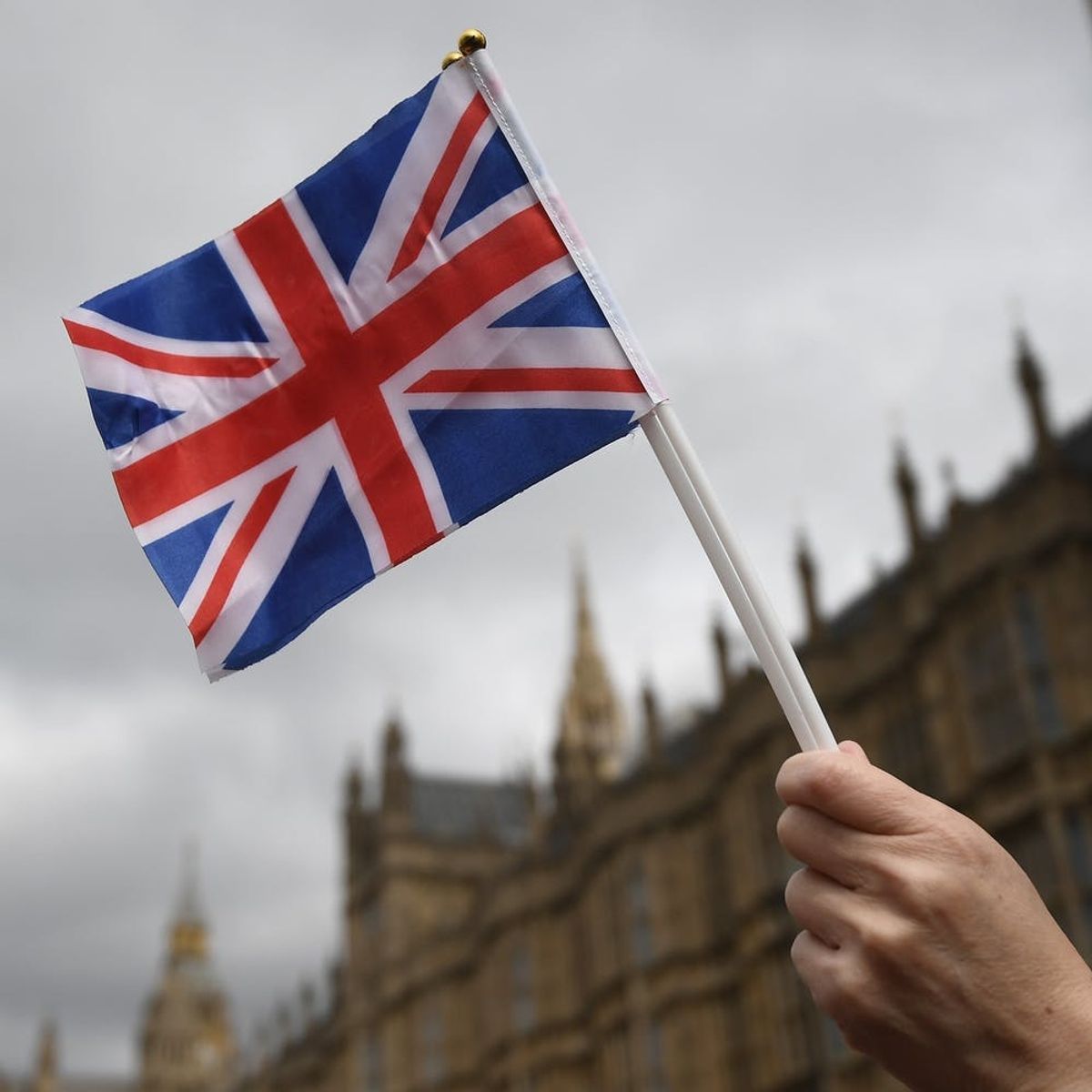Here’s What the UK’s “Brexit” Means Right Now


On June 23 last year, citizens of the United Kingdom voted to leave the European Union. Today, the UK’s prime minister Theresa May officially triggered the “Brexit,” which leaves a two-year countdown until the UK will be out of the EU.
The campaign to leave the EU was led by far-right factions, and has been largely described as xenophobic and anti-immigration. British novelist Kazuo Ishiguro described the decision as “a fight for the very soul of Britain,” and he’s not really exaggerating. The debate over the Brexit possibility revealed deep divisions within the UK… in a way that probably sounds familiar on this side of the pond too.
At the federal government level, the effort to get Britain out of the EU was championed by Nigel Farage, leader of the UK Independence Party (UKIP), an ultra right-wing political party. Farage even had a pro-Brexit, anti-migrant poster reported to police by a member of the Unison union because he felt it inspired racial hatred, violating British law.
Others quickly pointed out that Farage’s Brexit advertisements looked a lot like propaganda used by the Nazis during the Holocaust.
Your new poster resembles outright Nazi propaganda, @Nigel_Farage. Thanks to @brendanjharkin for pointing it out. pic.twitter.com/Rd89XZSvfD
— Connor Beaton (@zcbeaton) June 16, 2016
Racism was also a common theme among those in the general population who supported Brexit. The Independent reported in October, less than four months after the vote, that racist hate crimes in Britain had gone through the roof following the country’s decision to leave the EU. Hannah Moustafa, a 20-year-old Muslim woman who wears a hijab was verbally assaulted by an elderly man on the bus who told her, “We had enough of your kind, take that off your head or join Isis,” the Independent reported. Official numbers showed a 41 percent increase in “racially or religiously aggravated offences” the July following the Brexit vote, compared to July of 2015.
The day after the vote, John Cassidy wrote for the New Yorker that the EU was never very popular with “ordinary people in the UK,” pointing to a disconnect between working class people and the more cosmopolitan, business-minded ideals represented in the EU. The day after the Brexit vote, the New York Times described those who voted to leave the EU as “angry, confused and deeply distrustful of elites.”

There are multiple significant reasons why Britons want to leave the EU, but there remains nearly half the nation’s voters who wanted to stay. There was a concerted counter-effort to Farage and his colleagues, whose campaign was called Britain Stronger in Europe.
The campaign to remain in the EU was largely based on claims that the British economy, and jobs in particular, would be more secure if the country stayed in the Union. Economics observers agreed. The Economist wrote in October 2016 that Brexit would damage not only the British economy, trade, and finances elsewhere in the EU but more broadly in the Western world.
After the vote, many who voted in favor of leaving the EU expressed instant regret. The vote to leave shocked the UK as much as the rest of Europe, and many who voted for the Brexit never thought it would come to pass. Ironically, the percentage of those who came to regret their vote to leave totaled four percent by October of last year, according to the Economist. The vote to leave the EU was decided by a very narrow margin of 51.9 percent in favor of leaving, and 48.1 percent against.
Leave voter on BBC: "I'm shocked & worried. I voted Leave but didn't think my vote would count – I never thought it would actually happen."
— Laura Topham (@LauraTopham) June 24, 2016
Despite the risks, Britain is now on its way out. Former prime minister David Cameron stepped down following the Brexit vote, leaving the UK in the hands of current prime minister Theresa May, who supports the Brexit.
Today, a letter written by May was delivered to the EU, triggering a two-year countdown to the time Britain will be fully divorced from the Union.
WATCH: Theresa May tells Parliament that the UK has triggered #Article50 and is leaving the European Union. pic.twitter.com/9PSBNbAomy
— Change Britain (@Change_Britain) March 29, 2017
In her speech to Parliament, May called this day “an historic moment,” the full and long-term consequences of which remain to be seen. Britain is the first nation to ever make use of Article 50, a portion of the Lisbon treaty which allows any member of the EU to leave.
The UK will now enter exit negotiations with the other members of the EU. Politics and contemporary history lecturer with King’s College London Dr. Andrew Blick tells ABC News that the UK will undoubtedly have to pay a fine when they leave the EU, but the sum will be determined during negotiations.
Not only does UK face tough negotiations with the EU, but also internal strife that has resulted from the Brexit. Scotland, a country in the UK that voted 55 percent in favor of remaining in the EU, is seeking independence from the UK so that they may remain in the Union. According to the New York Times, Scottish Parliament voted 69 to 59 on Tuesday demanding a new referendum for their independence from Britain.
With approximately half of the nation’s citizens angry and hurt over the decision and at least one Home Nation looking to leave the UK itself, it’s clear that Britain and Europe will be changed forever.
What do you think about Brexit? Let us know on Twitter @BritandCo.
(Photos via Carl Court/Getty, Policy Exchange/Flickr + Sinn Féin/Flickr)

















